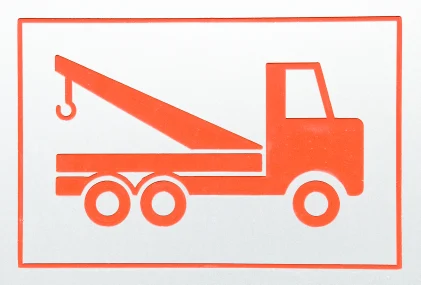
Get rid of your debt faster with debt relief
Choose your debt amount
Or speak to a debt consultant 844-731-0836
- Avoid a car repossession whenever possible.
- Understand the rights of the lender to collect on the money you still owe.
- Review your options for resolving a deficiency balance debt.
Voluntary vehicle repossession: do you know how many points/percent your credit is affected if you have to go this route?
Do you know how many points/percent your credit is affected if you have to voluntarily give up your car? Each credit agency has different scoring gauges, so how is someone supposed to know the real impact? Would the final result be reflected in the FICO score? and if so, do you know how badly if would affect my credit?
Thank you for your question about voluntary car repossession and its effects on your credit score.
Voluntary Repossession Effects
With regard to credit, a voluntary repossession is as bad as a regular repo. It will hurt your score badly for the next several years. Although no one can accurately predict how many points your score will fall, due to the complex way credit scores are calculated, you should expect at least a 100-point drop in score.
Effects of a Repo
If repossession hasn't happened yet, you should avoid it at all cost. A repossession is one of the worst things that can show on your credit report. Once the vehicle is repossessed, the lender will sell it off in an auction. Not only will they come after you for the difference (called a "deficiency balance") but they will also add all costs for the repossession, towing, storage, auction, reconditioning, late fees, interest, lawyers and anything else they can think of.
This could amount to several thousand dollars and if you do not pay, they can take you to court, get a judgment and then attach bank accounts, garnish wages (if your state allows it) and file liens on any other property you may own such as land and homes. Interest can continue to accrue, even after a judgment has been obtained.
Quick tip
Struggling with a deficiency balance debt? Contact one of Bills.com’s pre-screened debt providers for a free, no-hassle debt settlement quote.
All of this activity will show on your credit for seven years and make it difficult to get loans in the future without making large down payments, paying add-on fees, and high interest rates.
Deficiency Balance
Even if you surrender your vehicle to your lender voluntarily, the lender has the legal right to collect on any balance remaining on the debt after the car is sold at auction. This type of debt is referred to as a "deficiency balance." The creditor may even file a lawsuit against you to collect on the unpaid deficiency balance. You should therefore only proceed with a voluntary repossession if you truly cannot afford the loan, as you will likely still owe the lender a significant amount of money, even after you no longer have the use and benefit of the property.
A deficiency balance is an unsecured debt, which the law treats the same as credit card debt, a payday loan, or medical debt, amongst other consumer debts. To see your rights and options for resolving the deficiency balance, read "Collections Advice."
Readers often ask if there is a requirement that the original creditor provide an accounting of the repossession, including the cost of storage, auction, and so on, to determine the bottom-line number in the deficiency balance. The answer is, probably not. I am aware of no state law that requires creditors to provide an accounting to debtors. Similarly, I am not aware of any rules that explain what can or cannot be included in a deficiency balance. Storage, towing, cleaning, and auction fees are reasonable and would probably be allowed by a judge should the matter ever be litigated.
Reader also ask about charge-off and deficiency balances. The fact that a deficiency balance is charged off (sometimes called written-off) by a creditor does not mean the debt is no longer collectable.
For more information about credit, credit scoring, and credit reports, I encourage you to visit Bills.com Credit Resources.
I hope this information helps you Find. Learn & Save.
Best,
Bill
Struggling with debt?
If you are struggling with debt, you are not alone. According to the NY Federal Reserve total household debt as of Quarter Q4 2023 was $17.503 trillion. Student loan debt was $1.601 trillion and credit card debt was $1.129 trillion.
A significant percentage of people in the US are struggling with monthly payments and about 26% of households in the United States have debt in collections. According to data gathered by Urban.org from a sample of credit reports, the median debt in collections is $1,739. Credit card debt is prevalent and 3% have delinquent or derogatory card debt. The median debt in collections is $422.
Each state has its rate of delinquency and share of debts in collections. For example, in Pennsylvania credit card delinquency rate was 4%, and the median credit card debt was $387.
Avoiding collections isn’t always possible. A sudden loss of employment, death in the family, or sickness can lead to financial hardship. Fortunately, there are many ways to deal with debt including an aggressive payment plan, debt consolidation loan, or a negotiated settlement.